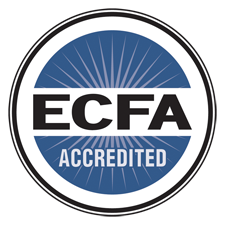The two-book model is a well-known and oft-used construct for articulating the basis for harmony between science and the Bible. In the model, God is the author of two books, the book of God’s works and the book of God’s words. Having the same omniscient author who cannot err means that the two books cannot conflict. Hence, any perceived conflict between the two is the result of an inaccurate interpretation, either by science of the book of God’s works or by theology of the book of God’s words. It seems to me that there is no or very little controversy in the Christian community about this model. The secular community doesn’t necessarily accept the premise that God authored either book. But Christians invariably accept both. I have read only one article that objects to the model and I haven’t been able to find it again. This model is therefore an excellent starting point for bringing harmony to the debates on science and faith.
The difficulties soon begin when it becomes obvious that the model doesn’t provide any insight on how to resolve perceived conflicts. Which interpretation needs to be changed if there is a difference of opinion? In several of my talks, I have taken the time to explore different variations of the two-book model which lead to different schools of thought.
The first chart in the attached file (downloadable from the link below this post) shows my personal version of the two-book model. I like to refer to the author as “Logos” in light of my favorite passage of creation in the first chapter of the Gospel of John. Science and theology are the study of the books of God’s works and words, respectively. The remaining pages reflect a somewhat playful modification of the model in ways that lead to various types of errors.
Consider the one-book model which reflects the view that the material world is evil or at least irrelevant and not worthy of consideration. Where is theology, however, when it cannot relate to the world in which we live? This version has little survival value.
Alternatively, a one-book variation might consider only the book of God’s works and not admit to God’s words. In that scenario, theology would seek to find God solely through the study of nature. This was a popular form of study a few centuries and we refer to it as natural theology. However, there is no calibration of the conclusions to be drawn about God from nature. Is he full of beauty and grace as the sunset over the calm ocean? Or is he full of rage and fury as the wind and waves in a hurricane?
Without the book of God’s words, would scientific study of God’s works lead us to God? This is essentially the basis of much of scientific apologetics. Many people feel that science, by itself, reveals the existence of God, another variation of natural theology. But who is this God? How is he related to the one revealed in the book of God’s words?
Another approach is to study the book of God’s words through scientific methodology. We refer to this as higher criticism. It presupposes primarily a human authorship of the Bible. While it can bring great insight into understanding the Bible, it can also be taken to extreme to minimize divine inspiration.
It is also possible to study the book of God’s works through the book of God’s words. In the early 18th century this approach was sometimes called “Scripture geology.” This leads us to the concept of concordism. The two-book model seems to me to be inherently non-concordistic in the sense that it makes no claims about the content and teachings of God’s word, particularly whether or not God’s word describes nature inerrantly. Concordism assumes that the Bible does teach science accurately and presages modern science and not ancient cosmology. This sets up a potentially inherent conflict model in which the study of God’s works through science is pitted against that study through God’s word. A non-concordistic approach assumes that the teachings in the two books are not of the same kind and therefore not inherently in conflict.
A true two-book model therefore can help us avoid many variations that lead to conflict and disagreement. Perhaps by seeing these conflicts as originating in a deviation from the two-book model, we can help diffuse the disagreements.

